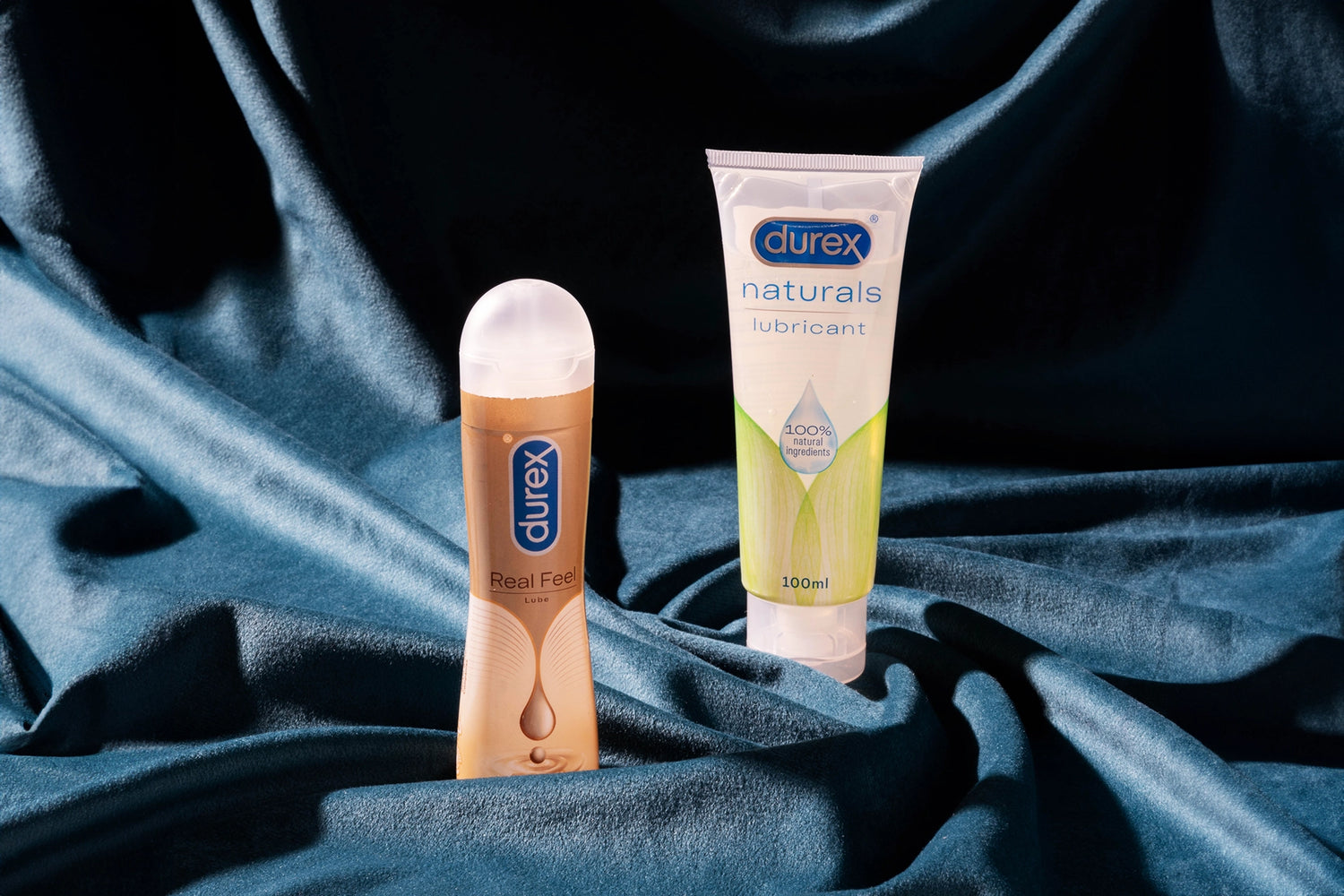
20 Questions about Female Virginity, Answered
Female Virginity - misjudged & misinterpreted is often perceived as a commodity that can be “lost”…
Can one truly lose something that, by definition, is merely a voluntary state of abstaining from sexual intercourse? Does it render someone impure or unsuitable for marriage?
In Indian culture, the notion of "virginity" holds significant value, but the statistics present a different narrative. The average age at which women in India lose their virginity is just 15 years. In many instances, young and unmarried women choose to keep their sexual status a secret, fearing rejection and shame from their own families and friends.
But does it really have to be this way?
Today, in this blog, we embark on a journey to debunk the myths and unveil the truth behind the concept of female virginity. We will address 20 pressing questions that concern both men and women, especially those navigating the complexities of singlehood or engaged in arranged marriages.
Join us as we navigate this often misunderstood aspect of human sexuality, challenging misconceptions and fostering a more informed, respectful, and accepting society.
In this article:
Questions about female virginity and its signs or symptoms

What is female virginity?
Female virginity is a term used to describe a woman who has either not engaged in sexual intercourse or has made the conscious decision to delay sexual activity, particularly involving penis-in-vagina (PIV) intercourse. However, it's important to understand that the perception of female virginity can mean different to different people, often influenced by their backgrounds and sexual orientation.
For instance, in some cultures, virginity is highly valued and considered a symbol of purity and moral virtue. In these societies, a woman's virginity might be associated with her eligibility for arranged marriages. On the other hand, in more liberal and progressive societies, the significance of virginity may be less pronounced, and people might focus more on emotional connections and consent in sexual relationships rather than emphasizing a woman's sexual history.
Are there visible signs of virginity?
As opposed to the antiquated notion of a “bleeding vagina”, there are no reliable visible signs of virginity in girls. The presence or absence of a hymen (commonly associated with virginity) can vary greatly among individuals, and it may not break or bleed during sexual intercourse. In a nutshell, virginity is not accurately determined through physical indicators.
Questions about the hymen

What is a hymen?
The hymen is a thin membrane located at the entrance of the vaginal canal in females. While it has been historically associated with virginity in girls, its presence and appearance can vary significantly among individuals.
Dr. Charmi Shah, a Gynecologist based in Ahmedabad, Gujarat, explains that the hymen typically have a crescent shape with an opening that allows for menstrual flow. It may partially or completely cover the vaginal opening. Contrary to misconceptions, the hymen is a flexible tissue that can stretch or wear away naturally over time due to various activities like sports, tampon use, or even non-sexual physical activities, making it an unreliable marker of virginity.
What are the signs of a hymen breaking?
The signs of a hymen breaking can vary, but they are not always clear or definitive. Some individuals may experience slight discomfort or pain during activities that put pressure on the hymen, such as sexual intercourse, cycling, self-pleasure, sports activities, or even day-to-day physical work. However, there may not be any noticeable signs or discomfort at all.
How do you know if your hymen is still there?
The presence or absence of the hymen cannot be reliably determined by self-examination. Hymens vary in size, shape, and thickness among individuals, and they can also change over time depending on a person’s lifestyle.
Can you break your hymen even if you’ve never had sex?
Yes, it is possible to break or stretch the hymen without ever having sexual intercourse. The hymen can be influenced by various non-sexual activities and factors, including physical activities, the use of tampons, gymnastics, or even normal daily movements. Once your hymen is stretched open, it can’t grow back.
Questions about losing virginity

How exactly does a girl lose her virginity?
A girl typically loses her virginity through engaging in penetrative sex, which typically involves partners of opposite genders. It's important to remember that this experience can vary for each person, and it should always be consensual and based on individual choices. Communication and understanding between partners are key.
Does every girl bleed when her virginity is lost?
It's possible that some of your sexually active friends experienced bleeding during their first time, but it's important to understand that not all women necessarily do. The belief that all women bleed during their initial sexual intercourse is a widespread misconception. Whether or not bleeding occurs depends on several factors, such as an individual's anatomical characteristics, the elasticity of the hymen, and the level of arousal and relaxation during the sexual experience.
However, it pays to prioritize comfort during first-time sex to ensure both you and your partner are relaxed and ready for the experience. Using lubricant can be incredibly helpful in reducing discomfort and potential pain. Lubrication can ease friction and make the experience more enjoyable. Remember that communication and consent are key, and taking things slowly can be a great step towards a more positive sexual debut.
Read More:
Are there symptoms of virginity loss?
Virginity is not a medical condition, and there are no physical symptoms associated with it. While some people may experience discomfort, increased heart rate, hot flashes, or minor bleeding during their first sexual encounter, these experiences can vary widely among individuals and are not consistent enough to be considered symptoms.
It's important to remember that virginity is a societal concept, and it doesn't have physical symptoms.
What happens after you lose your virginity as a woman?
In simple words, losing female virginity doesn’t change anything physiologically. Increased heart rate and muscle tension are some physical changes you might feel during sex though. Let’s just say, your body dances to the tunes of happy hormones that add to the pleasure.
But after indulging in sex for the first time, it's important to recognize that your feelings and experiences are valid. You should not feel guilty about it and don’t let anybody dictate how you should feel about this personal milestone.
However, it is important to note that indulging in unprotected sex can lead to pregnancy, and if you are not ready for parenthood, it’s advised to use the necessary protection or contraceptives. Durex’s thin flavored condoms make an excellent choice for those exploring intimacy for the first time. The thin material offers the advantage of an intimate connection with your partner while ensuring responsible protection.
Can a girl lose her virginity without her knowing?
No, a girl cannot lose her virginity without her knowing. It's typically categorized as a serious crime where consent is absent or coerced. Consent and awareness are crucial in any sexual encounter.
Can you get your virginity back?
Can you undo your first kiss? The first time you topped the class? The first medal you received for your exemplary performance in sports? Just like all the other first-times that you cherish, losing virginity should also be seen as a memorable experience.
Virginity is not a physical state that can be reversed or restored;
it's a concept related to one's sexual history.
Does female masturbation affect virginity?
If that were the case, every individual in the world, regardless of gender and orientation, would automatically be considered 'not a virgin.' Masturbation, defined as the act of self-stimulating one's genitals for sexual pleasure, does not entail sexual intercourse and, as such, does not affect one's virginity status. Period.
Read More:
Does fingering break virginity?
Losing virginity involves the penetration of the vagina by a penis and fingering does not meet this definition. However, fingering, whether performed by oneself or a partner, can potentially affect the hymen tissue, leading to changes in its appearance or integrity. If you're engaging in this activity for the first time, it's crucial to ensure a smooth and comfortable experience. Aggressive or harsh penetration with fingers can result in unnecessary discomfort, tearing, and even an increased risk of infections and sexually transmitted infections (STIs).
To enhance comfort and safety, consider using an appropriate lubricant designed for self-pleasure and foreplay. Products like Durex Play Lubricant Gel Saucy Strawberry can enhance pleasure while promoting comfort and safety.
Does using a menstrual cup affect virginity?
To address this question, it's essential to understand the primary purpose of menstrual cups in a woman's personal hygiene routine. A menstrual cup is a cup-shaped silicone or rubber device that is inserted into the vagina to collect menstrual blood—something that you’d be doing every month for the rest of your life. So, while using a menstrual cup may have a minor impact on the hymen, they do not fundamentally change one's virginity status because virginity encompasses a broader range of factors beyond the physical.
How does a woman’s body change after she loses her virginity?
Happy changes?
Sure!
But something that alters your body or life, forever?
Move, please!
Physiologically, there are no specific changes in the body that occur simply because someone has had sex for the first time. Any immediate changes that may occur, such as temporary discomfort, swelling, rashes in case of sensitivities, or minor bleeding, are not permanent and should not be confused with long-term physiological alterations.
It's important to understand that the experience of losing virginity is primarily a personal and emotional one.
Can a girl get pregnant without losing her virginity?
In a typical setting, pregnancy happens when a sperm fertilizes an egg, which can happen even without penetration. Did that kill the buzz? Better safe than sorry...
As soon as the penis is erect, "pre-cum" is produced that can carry thousands of sperm. It is possible to get pregnant if your partner ejaculates very close to your vagina or the erect penis comes into contact with the vulva. While these situations are less common, they do carry a risk of pregnancy.
Consequently, understanding contraception and practicing safe sex is important for anyone engaging in sexual activities, even if they have not engaged in vaginal intercourse. Durex offers a diverse selection of condoms designed to provide protection and enhance pleasure during various forms of sexual intimacy.
Is it normal for a period to be delayed after losing virginity?
Yes, it is normal for a period to be delayed or irregular after losing one's virginity or engaging in sexual intercourse for the first time. This delay can be due to various factors, including changes in hormone levels, stress, anxiety, or the body adjusting to sexual activity. It's important to note that these changes are typically temporary, and menstrual cycles often regulate themselves over time.
If you're worried about a delayed period after having unprotected sex, consider taking a pregnancy test. When you decide to embark on a sexual journey, it's essential to prioritize using condoms consistently. Condoms not only shield against sexually transmitted infections (STIs) but also offer reassurance when it comes to preventing unwanted pregnancies.
Questions about virginity tests
How to check if a girl is still a virgin?
Dare to ask this to a millennial or Gen Z girl? Not cool, dude!
Virginity is a personal aspect of an individual's life, and it cannot be determined by an external examination. It's essential to respect a person's privacy, autonomy, and right to make their own choices regarding their sexual activity.
Inquiries about someone's virginity, whether a girl or a boy, can be invasive, judgmental, and potentially harmful. Instead, prioritize open and honest communication, consent, and respect in your relationship.
Is there a medical test for female virginity?
There is no reliable or scientifically valid medical test for female virginity. Medical professionals do not perform tests to confirm virginity, as it is not a valid medical concern.











